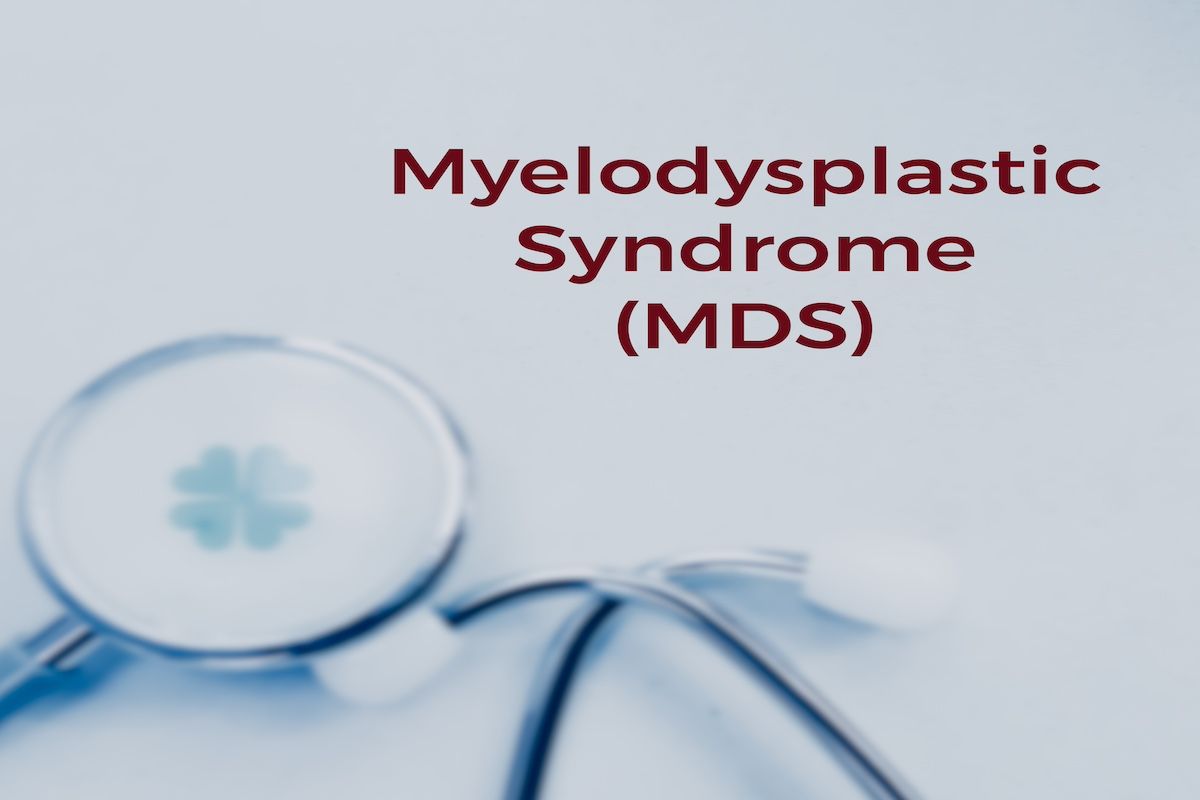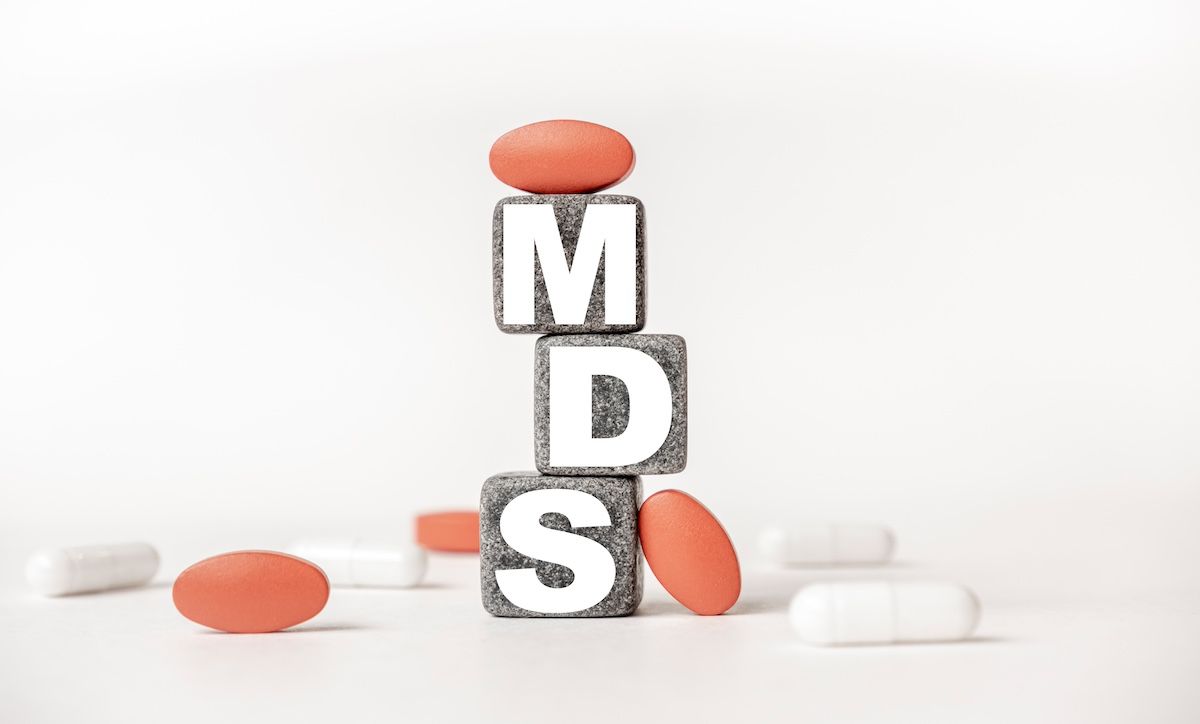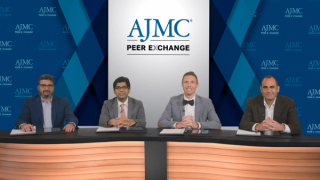
Myelodysplastic Syndromes
Latest News

Latest Videos

More News

This study builds on previous evidence for lenalidomide-induced selective advantage for TP53-mutant clones.

The report offers new insights into the limits of the BCL2 inhibitor among patients who have myelodysplastic syndromes.

It is possible, if you lay the groundwork, to provide patients with acute leukemias with aggressive and effective therapies, while still allowing them to maintain quality of life, explained Jennifer Vaughn, MD, of The Ohio State University Comprehensive Cancer Center – James Cancer Hospital.
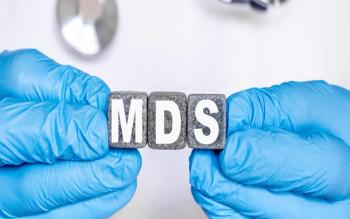
The report found the therapy boosted rates of transfusion independence, particularly among patients who had a low baseline transfusion rate.

Venetoclax and azacitidine was found safe, but further randomized trials are needed to determine the full extent of the combination’s efficacy in myelodysplastic syndromes (MDS) and acute myeloid leukemia (AML).
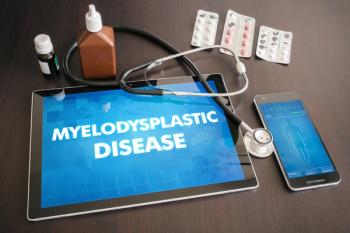
A rare mutation on the BCL6-corepressor gene correlated with worse overall survival in patients with acute myeloid leukemia (AML) and myelodysplastic syndrome (MDS). However, allogenic stem cell transplant improved survival in this population.
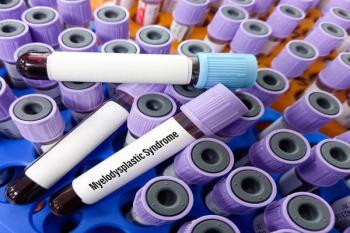
Investigators say a better understanding of risk factors and categories can help personalize care for patients living with myelodysplastic syndrome (MDS).

Results of a phase 1/2 trial show encouraging outcomes for patients with higher-risk myelodysplastic syndromes (MDS) and chronic myelomonocytic leukemia (CMML) treated with the fully oral regimen of venetoclax and decitabine plus cedazuridine.

A review of recent research into myelodysplastic syndromes (MDS) shows a range of potential therapeutic targets.

Patients with comorbid acute myeloid leukemia (AML) and myelodysplastic syndrome (MDS) expressed a desire to discuss treatment options and maintain normalcy; they were not willing to have conversations involving their prognosis and future.
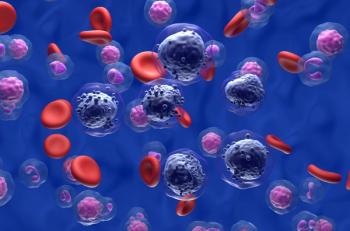
The phase 3 ASCERTAIN study found that orally administered decitabine and cedazuridine had similar pharmacologic effects compared with intravenously administered decitabine.

Pulling data from a US electronic health record–based database, researchers found low rates of complete remission and poor overall survival among 382 patients who had myelodysplastic syndromes (MDS) receiving first-line azacytidine (AZA).

The study, which pulled self-reported data from online bulletin boards across the US, Canada, and the United Kingdom in 2020, found that the degree of burden varied based on patient disease stage, among other factors.

Myelodysplastic syndrome is an extremely heterogeneous disease, and there is no definitive cure, so these investigators wanted a better understanding of patients’ priorities regarding their care, quality of life, and communication with the care team.
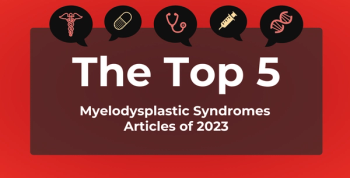
An August approval of luspatercept, sold as Reblozyl, which promises to alleviate transfusion burdens for patients with lower-risk MDS, was among the news items that drew readers’ attention.
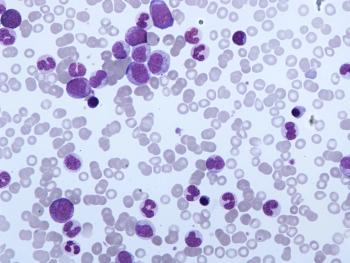
The authors concluded that the data support consideration of the oral regimen of decitabine and cedazuridine to reduce the treatment burden associated with intraveous or subcutaneous hypomethylating agents in patients with myelodysplastic syndromes (MDS).
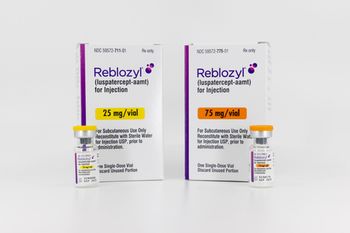
The data were presented December 9, 2023, during the 65th American Society of Hematology Annual Meeting and Exposition in San Diego, California.

The past year has offered new hope for patients with lower-risk myelodysplastic syndromes. Besides imetelstat, which has an FDA deadline for action of June 2024, the agency approved luspatercept, which has a different mechanism of action.

Investigators from several medical centers in Japan were surprised to find that women with myelodysplastic syndrome (MDS) had a survival advantage from a 7-day dosing schedule, but that benefit compared with a reduced schedule was not seen in men.

Patients with myelodysplastic syndrome harboring a TP53 mutation experienced a survival benefit with allogeneic hematopoietic cell transplantation compared with non-HCT treatment regardless of TP53 allelic status.
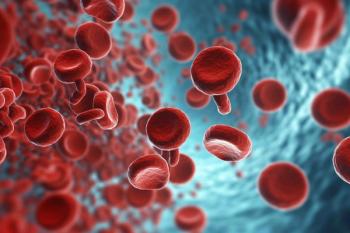
Data from a retrospective study spotlight a need for more effective first-line and second-line clinical management strategies to improve outcomes in patients with lower-risk myelodysplastic syndrome.
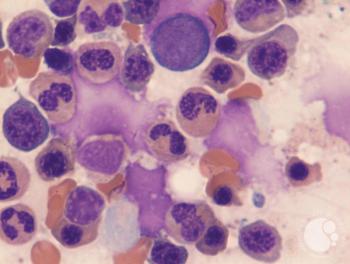
Given the likelihood of MDS to progress to acute myeloid leukemia (AML), the authors state, “There are certain settings where ‘AML-like’ therapies are appropriate in MDS, particularly given our evolving understanding of the overlapping biology of these malignancies.”

Ivosidenib monotherapy is now approved by the FDA for patients with relapsed/refractory myelodysplastic syndrome with an IDH1 mutation.

The authors discussed a polymorphism of the LEP gene associated not only with cancer, but also with chronic diseases including obesity and diabetes, offering them a reason to look into the relationship between LEP and myelodysplastic syndrome (MDS).
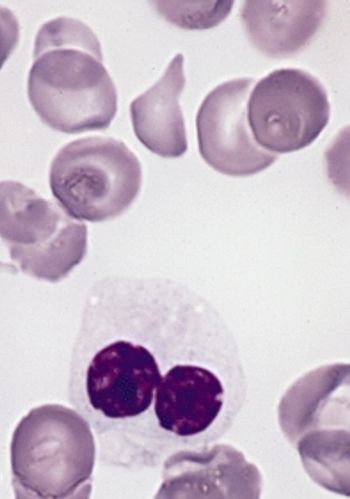
Investigators evaluated 70 patients in a retrospective study.
